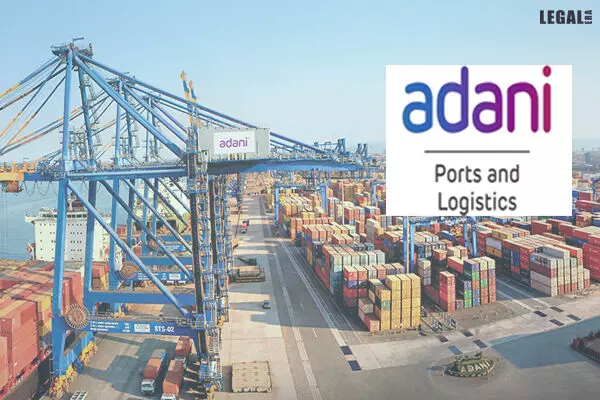- Home
- News
- Articles+
- Aerospace
- Artificial Intelligence
- Agriculture
- Alternate Dispute Resolution
- Arbitration & Mediation
- Banking and Finance
- Bankruptcy
- Book Review
- Bribery & Corruption
- Commercial Litigation
- Competition Law
- Conference Reports
- Consumer Products
- Contract
- Corporate Governance
- Corporate Law
- Covid-19
- Cryptocurrency
- Cybersecurity
- Data Protection
- Defence
- Digital Economy
- E-commerce
- Employment Law
- Energy and Natural Resources
- Entertainment and Sports Law
- Environmental Law
- Environmental, Social, and Governance
- Foreign Direct Investment
- Food and Beverage
- Gaming
- Health Care
- IBC Diaries
- In Focus
- Inclusion & Diversity
- Insurance Law
- Intellectual Property
- International Law
- IP & Tech Era
- Know the Law
- Labour Laws
- Law & Policy and Regulation
- Litigation
- Litigation Funding
- Manufacturing
- Mergers & Acquisitions
- NFTs
- Privacy
- Private Equity
- Project Finance
- Real Estate
- Risk and Compliance
- Student Corner
- Take On Board
- Tax
- Technology Media and Telecom
- Tributes
- Viewpoint
- Zoom In
- Law Firms
- In-House
- Rankings
- E-Magazine
- Legal Era TV
- Events
- Middle East
- Africa
- News
- Articles
- Aerospace
- Artificial Intelligence
- Agriculture
- Alternate Dispute Resolution
- Arbitration & Mediation
- Banking and Finance
- Bankruptcy
- Book Review
- Bribery & Corruption
- Commercial Litigation
- Competition Law
- Conference Reports
- Consumer Products
- Contract
- Corporate Governance
- Corporate Law
- Covid-19
- Cryptocurrency
- Cybersecurity
- Data Protection
- Defence
- Digital Economy
- E-commerce
- Employment Law
- Energy and Natural Resources
- Entertainment and Sports Law
- Environmental Law
- Environmental, Social, and Governance
- Foreign Direct Investment
- Food and Beverage
- Gaming
- Health Care
- IBC Diaries
- In Focus
- Inclusion & Diversity
- Insurance Law
- Intellectual Property
- International Law
- IP & Tech Era
- Know the Law
- Labour Laws
- Law & Policy and Regulation
- Litigation
- Litigation Funding
- Manufacturing
- Mergers & Acquisitions
- NFTs
- Privacy
- Private Equity
- Project Finance
- Real Estate
- Risk and Compliance
- Student Corner
- Take On Board
- Tax
- Technology Media and Telecom
- Tributes
- Viewpoint
- Zoom In
- Law Firms
- In-House
- Rankings
- E-Magazine
- Legal Era TV
- Events
- Middle East
- Africa
Bombay High Court rejects Adani Ports plea against JNPA

Bombay High Court rejects Adani Ports plea against JNPA
Also known as Nhava Sheva, it is rated as the best performing ports in the country with the highest index value being 84.61
The Bombay High Court has dismissed the plea by Adani Ports and Special Economic Zone Limited against Jawaharlal Nehru Port Authority (JNPA). Adani Ports had challenged the disqualification of its bid for upgrading the container terminal in Navi Mumbai by the Board of Trustees of JNPA.
A division bench of Chief Justice Dipankar Datta and Justice M.S. Karnik rejected the plea as non-meritorious. It directed the company to pay Rs.5 lakh to JNPA. Since Adani Ports had already submitted Rs.4.25 lakh with the tender to JNPA, it has to deposit only the remaining amount of Rs.75,000.
The court also rejected the request of Adani Ports to maintain the status quo and not open the bids till it sought relief before the Supreme Court.
As per the plea, the bidding process comprised two stages. First, a global invitation of 'Request for Qualification' (RFQ) seeking applications from interested parties. Second, the applicants had to send their 'Request for Proposal.'
Adani Ports had contended that after submitting its RFQ, the Board sought clarifications from them and raised a query about the termination of the concession agreement between Visakhapatnam Port Trust and Adani Vizag Coal Terminal.
Although Adani Ports responded to the query and the Board acknowledged that the company had cleared the qualification stage, the latter sent a show-cause notice to the company. It questioned Adani Ports why they should not be disqualified from the bidding process.
Adani Ports pleaded that the Board's notice came consequent to an order by the Andhra Pradesh High Court, wherein the termination of the concession agreement was upheld. But recently, the Board issued a termination letter.
Adani Ports, therefore, sought a direction from the court to restrain the Board from declaring the highest bidder and grant a stay.



